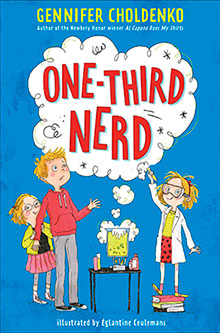 One of my favorite books of Gennifer Choldenko’s is One-Third Nerd, in which a brother and two sisters attempt to solve the problem of their beloved dog being incontinent in their rented apartment, over which the landlord threatens to evict them. They’ve been told a vet could fix the problem, but surgery for their dog is low on their parents’ list of priorities. The kids use their imaginative problem-solving skills to raise money, which sets up both hilarious and poignant scenes. It’s a book in which family, friends, and community pull together to support each other, which makes it one of my top books for recommended reading.
One of my favorite books of Gennifer Choldenko’s is One-Third Nerd, in which a brother and two sisters attempt to solve the problem of their beloved dog being incontinent in their rented apartment, over which the landlord threatens to evict them. They’ve been told a vet could fix the problem, but surgery for their dog is low on their parents’ list of priorities. The kids use their imaginative problem-solving skills to raise money, which sets up both hilarious and poignant scenes. It’s a book in which family, friends, and community pull together to support each other, which makes it one of my top books for recommended reading.
We’ve asked Gennifer Choldenko, the author, to share some insights behind the book, knowing you’ll find these invaluable when you are book-talking and teaching writing in your classroom.
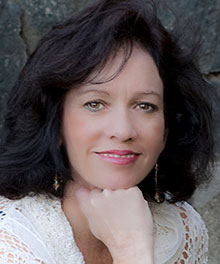 Was being funny a goal for you as a child?
Was being funny a goal for you as a child?
It wasn’t a goal. It was a requirement. In our family humor, ribbing, and kidding was our language. It was how we showed our affection for each other. You had to know it to survive. Since I was the youngest, and odd man out, humor was my most important survival skill.
On a side note, humor is still very important to me. On my first date with the man who would become my husband, everything went badly. He showed up with no money. I paid. No car. I drove. He spent the entire date talking about his ex-girlfriend, who he said was brilliant, sophisticated, stunningly beautiful — perfect in every way. He talked over the movie explaining the events unfolding as if I were too stupid to follow the plot myself. On my way to his apartment where I was planning to dump him unceremoniously on his doorstep, never to see him again, I pointed out to him just why this date had gone so badly. By the time I finished my litany, we were laughing so hard I had to pull the car over. We’ve been happily married for 31 years.
So many readers ask for funny books. Many of your books, including the Al Capone series, have humorous elements. One-Third Nerd is, in my opinion, your most comedic book so far. It made me giddy to read it. Does humor flow from you naturally or do you work over your manuscript to increase the “funny”?
Some characters are funny from the get-go. The humor is generated from the friction between how they view the world and how the reader knows it to be. When a character like that pops on the page I’m thrilled. But those characters are a gift. I can’t make them appear.
Trying to “increase the funny” has never worked for me. When I have tried, the humor is forced. Instead, I look for missed opportunities. I sense a missed opportunity for humor the way I sense where exactly my foot needs a good scratching.
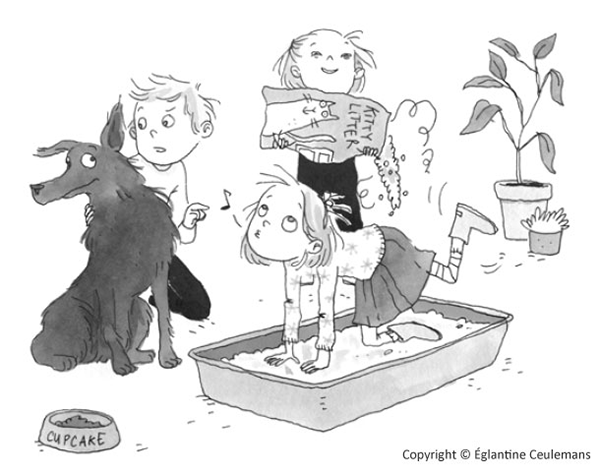
Wendy Lamb Books, Random House
We’re often talking about a book’s characters in class or in book clubs. Can you help us see inside this aspect of creating characters that you accomplish so well?
Good characters arrive on the page fully formed. I don’t work at creating them so much as they just show up. There are always one or two characters that don’t pop on to the page this way. And then I have to work hard to breathe life into them. When I say: “work hard” I mean figure out their secrets, what they keep in their closet, what’s under their bed, what they eat for lunch, who they envy, how they feel about their siblings, which parent they prefer, etc. The better characters somehow sense these things intuitively. And every day I work on the manuscript I discover more about them. But with the hard-to-know characters, I do the work. Then I close the file and start writing about them again. Generally, the things I “figured out” about them aren’t right. But somehow that “figuring out” process helps me get closer to who they really are. Often, it is in finding out who these characters aren’t, that I begin to get the first inkling about who they are.
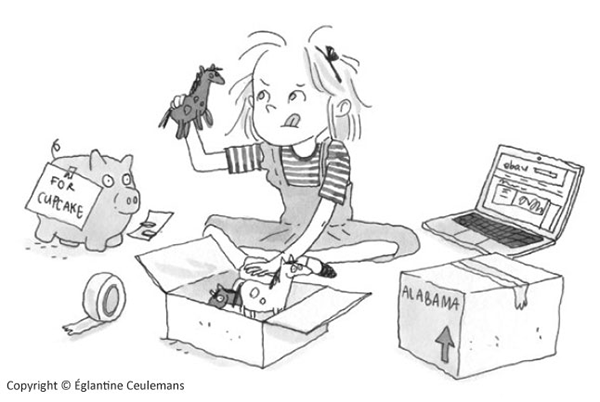
Wendy Lamb Books, Random House
Izzy is an endearing character. She has Downs syndrome but you haven’t let that define her. We’ve already fallen in love with Izzy when we realize her big sister, Dakota, is selling Izzy’s collection of plastic horses on “eBay.” Who came first in your conception of the book, Dakota or Izzy?
Dakota came first. Then I began brainstorming the family that would be the most difficult for her to handle. Like many bright kids, Dakota assumes that everyone sees things the way she does and her way of viewing the world is the “right” way. So I thought what if . . . Dakota had a little sister who was very different from her. How would Dakota cope with that?
Liam arrived on the scene because I thought it would be funnier to tell the story from his point of view. I know there are a lot of books with very bright characters who have hilarious voices. Lisa Yee’s wonderful book Millicent Min, Girl Genius comes to mind. And of course the amazing Junie B. Jones books by Barbara Park, The Miscalculations of Lightening Girl by Stacy McAnulty and many, many others. But I liked the idea of a boy who was extremely self-conscious telling the story about his highly embarrassing sister. When I speak to school groups about One-Third Nerd, I always ask: “Raise your hand if your sister or brother or cousin has ever embarrassed you?” The entire room erupts. Nearly every child has a story they can’t wait to tell me about something incredibly embarrassing a sibling or cousin has done.
When you began writing this book, did you know roughly how many characters there would be? Or do you add them as needed?
I never know how many characters I’ll need. My tendency is to have too many. In revision, I often find I have to cut out a few, so I don’t overwhelm the book.
Did you have to cut any parts of the story that you wish you could have kept?
No, but I have written a few chapters of a sequel. Would you like to see the first chapter?
Do you have a favorite character among your troupe?
I love them all of course. But I’m partial to Izzy because she tries so hard. I ‘m a person who tries really hard—some would say too hard—at things that matter to me. So, I have a soft spot for kids who put forth huge effort to do things that are effortless for many other kids. Then, too, I really admire the way Izzy is able to build relationships. So, yes, I am absolutely smitten by Izzy.
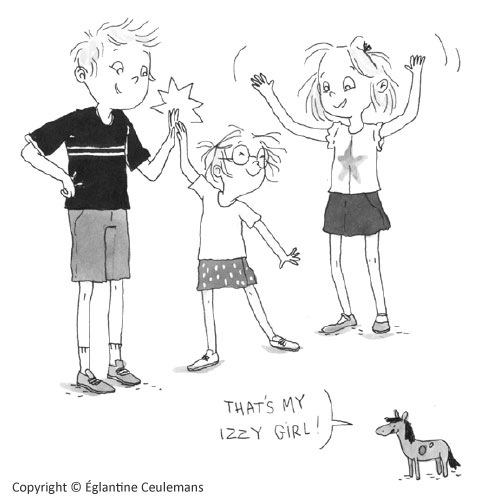
Églantine Ceulemans, Wendy Lamb Books, Random House
Did any of your characters surprise you?
With luck, they all surprise me. If my characters don’t begin behaving in ways I don’t expect, then they aren’t good characters.
Of your main and minor characters in this book, whose voice was hardest for you to write?
Mom’s voice. I had a hard time figuring out who she was. I knew I liked her and I felt like I understood her on a superficial level, but it was difficult to get inside her in a deeper way. I sometimes have trouble with adults, because generally they aren’t as interesting to me as kids are. There are exceptions, of course. I absolutely adored writing Jabo in my novel Orphan Eleven due out in May 2020.
I also struggled with the dog, Cupcake. I think that’s because she was too much like my own dog the much adored Sasha. I don’t do well writing about characters who are too much like real beings. I doubt I will ever write a memoir. I like to create more than I like to describe.
I think you’ve written believable and essential adult characters for this story. Although the parents are divorced, they’re both very much present in their children’s lives. Was it a conscious decision to let adults be a vital part of this story?
Even the most child-friendly divorce is still really, really hard for kids. Relationships change as a function of the new situation. Homes often change. Sometimes schools and friends. Routines are upended. Weekends and holidays change completely. And there is a rejiggering of the relationships a kid has with each of her parents. Ideally, when a kid turns nine or ten or eleven parents begin to fade into the background, because a kid is beginning to step out on her own. But when a divorce happens the process of becoming more independent is temporarily halted until a child establishes new relationships with her now separate parents. So yes parents become front and center in a child’s life, until the divorce settles. This is a long answer for why the Rose parents are an important part of this book. And of course these are my opinions. I’m not a therapist.
Gennifer, thank you for sharing a behind-the-curtain look at the skills you apply to every book you write. Readers, both children and adults, are lucky to encounter the stories you tell.

Great interview! Characterization is what I struggle most with, and I enjoyed reading about the genesis of the characters for this book. I’ve added One-Third Nerd to my to-read shelf – it sounds awesome.
Good! I’m glad this has been helpful for you, Laura. I found the book funny and inspiring. Hope you do as well.